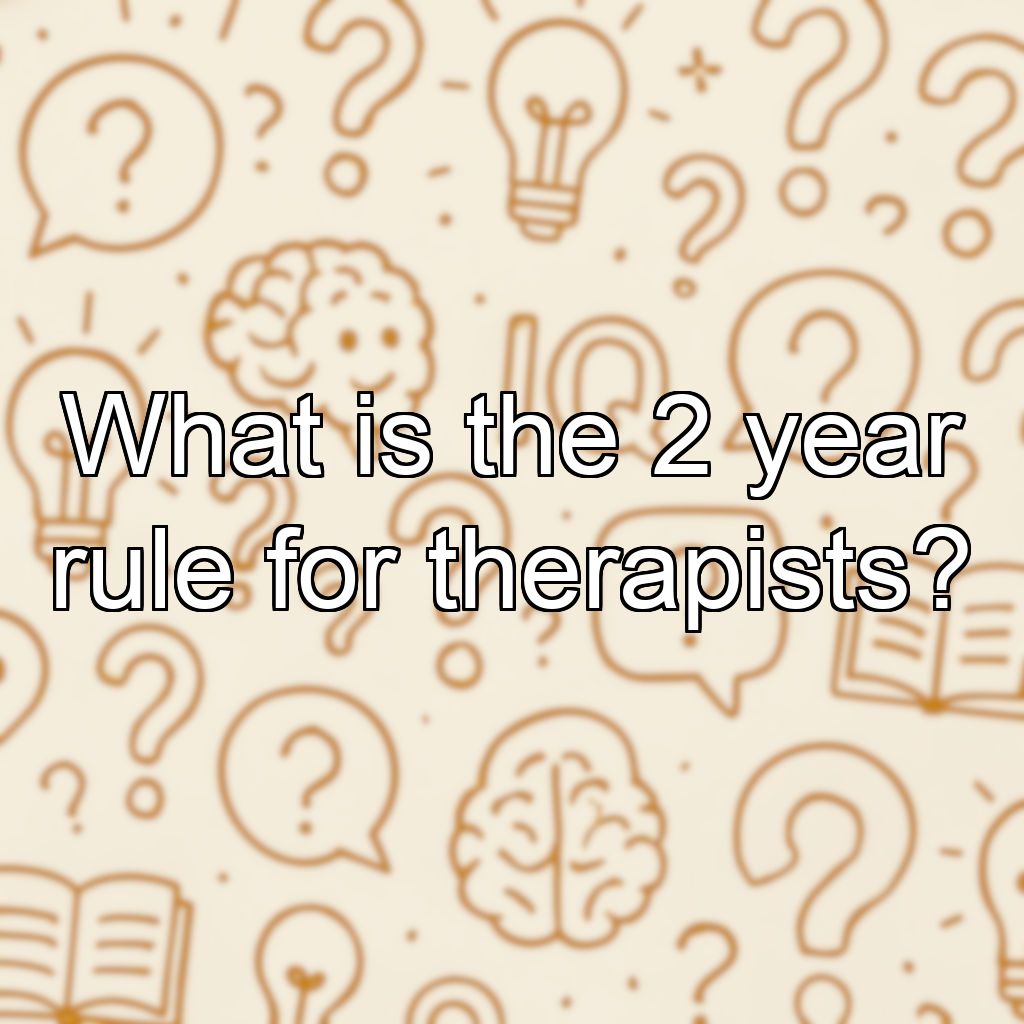What is the 2 year rule for therapists?

The 2-Year Rule for Therapists
The "2-year rule" is an ethical guideline commonly found in professional codes of conduct for therapists, counselors, psychologists, and other mental health professionals. This rule prohibits therapists from engaging in romantic or sexual relationships with former clients for at least two years after the professional relationship has ended.
Purpose of the Rule
- Protecting Clients: The primary aim is to protect clients from potential exploitation and harm that can arise from the significant power imbalance in a therapeutic relationship.
- Maintaining Professional Boundaries: Encourages therapists to maintain clear, ethical boundaries even after the formal relationship ends.
Key Points
- Duration: Most professional organizations (such as the American Psychological Association and the American Counseling Association) require at least a two-year waiting period before any romantic or sexual relationship with a former client may be considered.
- Not an Absolute Permission: Even after two years, such relationships are often discouraged or subject to strict scrutiny. Therapists must demonstrate that no exploitation has occurred and that the client's welfare is not compromised.
- State Laws and Codes: Specific details of the rule can vary by state, country, and professional board, so therapists must adhere to the most stringent applicable standard.
Summary
The 2-year rule is designed to prevent conflicts of interest and protect clients from harm. Therapists should always consult their professional code of ethics and local laws for specific guidance.